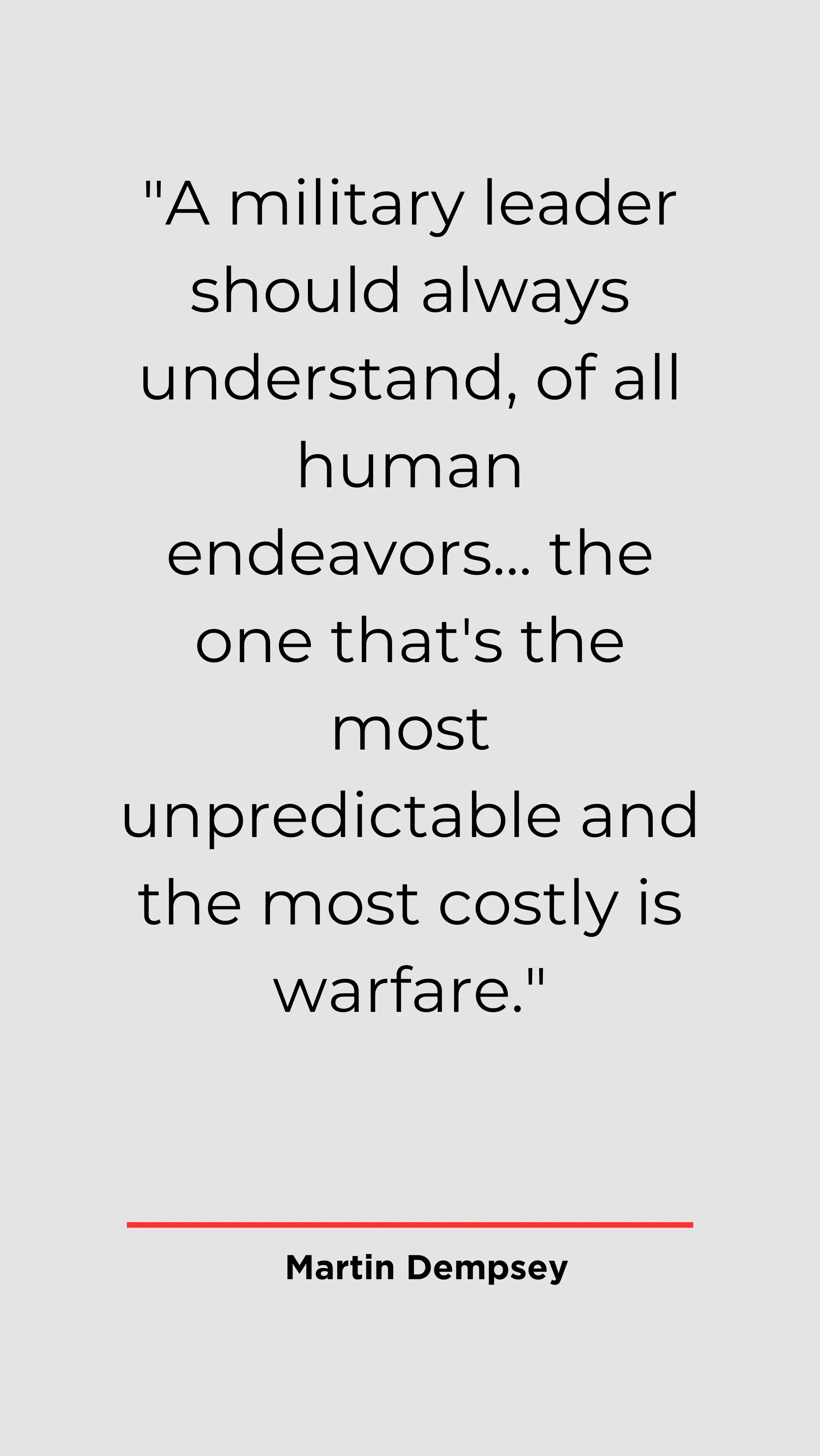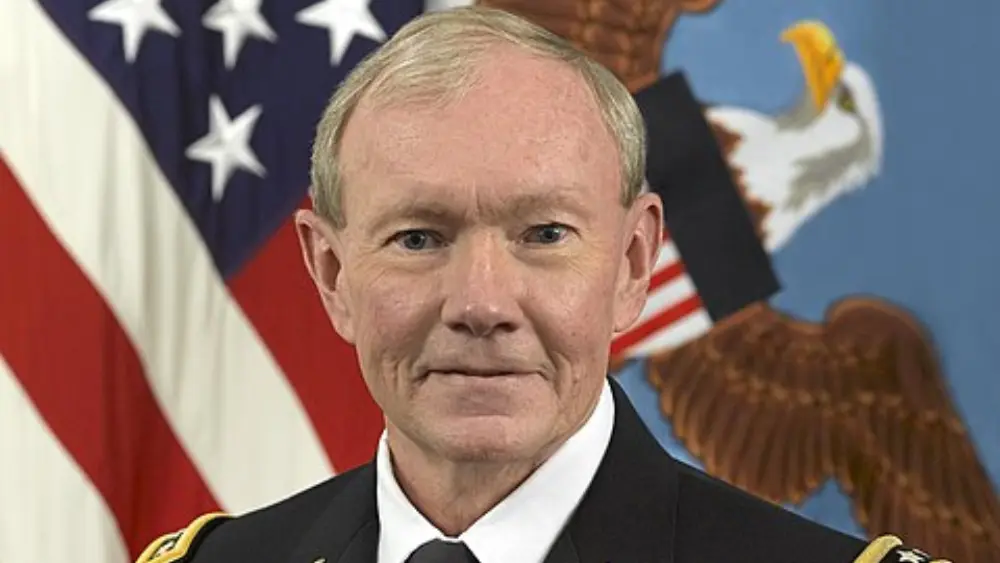Martin Edward Dempsey, born on March 14, 1952, in Bayonne, New Jersey, is a retired four-star general in the United States Army who served as the 18th Chairman of the Joint Chiefs of Staff, the highest-ranking military officer in the U.S. Armed Forces. He marked his military career with exemplary leadership and a deep commitment to national security.
Early Life and Education
Martin Dempsey’s early life and education paved the way for his distinguished career in public service. He embarked on this journey by enrolling at the United States Military Academy at West Point, a renowned institution known for producing exceptional military leaders. In 1974, Dempsey graduated from West Point with a Bachelor of Science degree in engineering, a foundation that would later serve him well in his military career.
Dempsey’s educational pursuits extended beyond the realm of engineering, highlighting his diverse interests and talents. His military dedication and love for the arts showed through as he pursued a Master’s in English from Duke University. Military discipline and deep arts appreciation defined his character and leadership, shaping his career in the armed forces and beyond.
Martin Dempsey: Service in the U.S. Army
Dempsey’s 40-year military career featured key commands and staff roles, highlighting his leadership and dedication to the nation. His assignments took him to diverse and challenging locations, including Germany, Saudi Arabia, and Iraq. Through each assignment, Dempsey demonstrated his steadfast commitment to the principles of duty and honor that define the U.S. Army.
What set Dempsey apart was his remarkable talent for command. He was entrusted with leadership roles that demanded both strategic vision and tactical expertise, positions he handled with aplomb. Diverse roles showcased his military prowess and unwavering dedication to national safety and security. Dempsey’s career in the U.S. Army was characterized by a steadfast commitment to excellence and a resolute determination to protect and defend his country.
Iraq: Commanding General, Multi-National Security Transition Command-Iraq
Dempsey’s pivotal role in the Iraq War as Commanding General of Multi-National Security Transition Command-Iraq marked a significant career chapter. In this high-stakes position, Dempsey wielded significant responsibility in a critical period of the conflict. Afterwards, he led the mission to train and advise Iraqi security forces, aiding their transition into a self-reliant and capable fighting unit.
Dempsey’s leadership during this period was marked by a combination of strategic insight, diplomatic acumen, and military expertise. His adept handling of Iraqi partnerships while ensuring regional security was pivotal in shaping the war’s course. So, his commitment to the mission and dedication to Iraqi stability foreshadowed qualities defining his later leadership at the highest U.S. military levels.
Martin Dempsey: Chief of Staff of the Army
Martin Dempsey’s tenure as the 37th Chief of Staff of the Army from 2011 to 2015 showcased exceptional leadership and strategic prowess. As a top U.S. Army officer, Dempsey managed and directed the Army during dynamic change and evolving challenges, a significant responsibility.
As Army Chief, Dempsey modernized, readied, and ensured adaptability against emerging threats, defining his leadership during his tenure. Strategic acumen and soldier welfare guided him through complex military operations and global security concerns, highlighting his leadership. Dempsey’s Army leadership exemplified the unwavering commitment to national defense and dedication to U.S. military values and principles.
Chairman of the Joint Chiefs of Staff
Obama’s 2011 nomination of Martin Dempsey as Chairman of the Joint Chiefs marked his apex, becoming the highest-ranking U.S. military officer. In this role, Dempsey wielded immense influence and responsibility, offering crucial strategic counsel to the President and the Defense Secretary. Furthermore, He oversaw operations and influenced U.S. defense policy, central to shaping military strategy and execution during his tenure.
As Chairman of the Joint Chiefs of Staff, Dempsey’s leadership was characterized by a comprehensive understanding of the complex challenges facing the nation’s military. He navigated the intricate landscape of international affairs, military engagements, and global security concerns with a steady hand and a keen strategic vision. His tenure was marked by his commitment to the welfare of U.S. service members, his dedication to maintaining the highest standards of military readiness, and his unwavering pursuit of the nation’s security interests.
Martin Dempsey: Challenges and Decision-Making
Dempsey’s Chairmanship faced formidable challenges. His adept decisions in a rapidly changing global landscape defined his tenure. He led during U.S. force drawdowns in Iraq and Afghanistan, balancing national security and transitioning to new military engagement phases. Dempsey faced complex terrorism challenges, requiring multifaceted approaches blending military operations, intelligence, and international cooperation during his tenure.
Syria’s conflict posed intricate challenges. Dempsey navigated a volatile region, addressing humanitarian and security concerns during his leadership. Moreover, Dempsey’s approach to these challenges was characterized by a combination of military strategy, diplomacy, and adaptability, reflecting his commitment to safeguarding U.S. interests while seeking peaceful resolutions whenever possible. His decision-making during these turbulent times underscored his ability to lead the U.S. military with wisdom and foresight in the pursuit of national security and global stability.

Retirement and Continued Service
Following his retirement from the military in 2015, Martin Dempsey continued to make valuable contributions to public service. He shared his wealth of leadership experience by authoring a memoir titled “Radical Inclusion.” In this book, he delved into leadership lessons drawn from his extensive military career, offering insights that could benefit leaders in diverse fields. Also, his commitment to mentoring and shaping future leaders remained evident, reflecting his dedication to the principles of leadership and service.
Dempsey’s post-retirement journey also saw him taking on the role of Chairman of USA Basketball. In this capacity, he assumed leadership over the organization’s efforts to promote basketball and American values on the global stage. In addition, his involvement in the world of sports exemplified his dedication to fostering positive international relationships and using the platform of athletics to advance American ideals. Even in retirement, Martin Dempsey continued to exemplify the values of duty, honor, and country that defined his remarkable U.S. military career.










